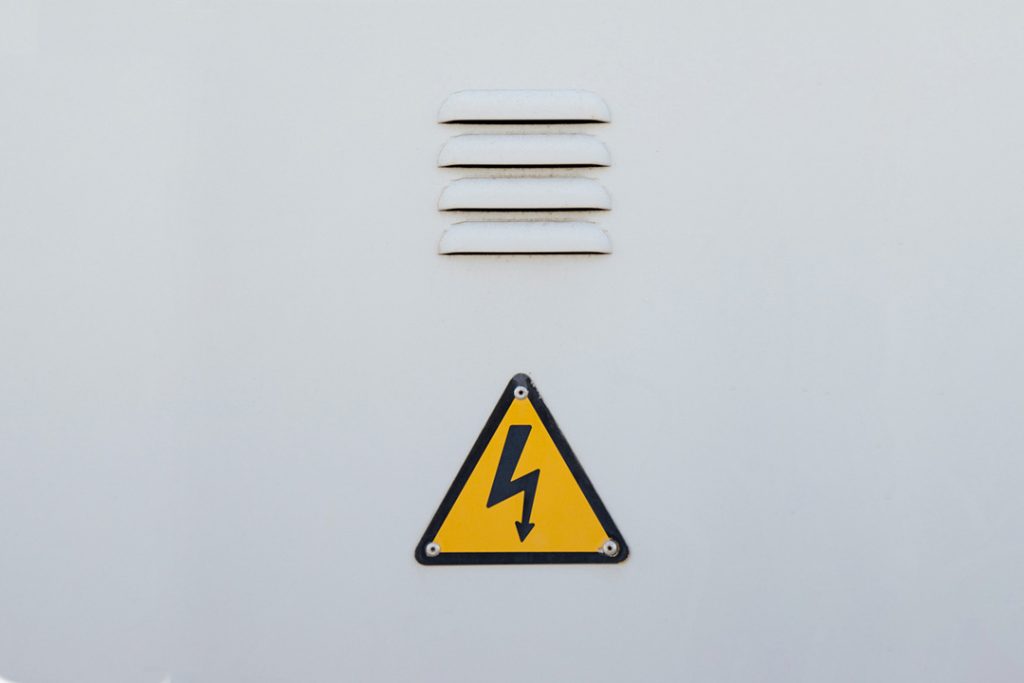Extreme caution and attention to detail are vital for safely handling, storing, and transporting flammable and explosive materials. Electrostatic discharges, which can ignite these materials, are a serious issue when using standard bulk bags or Flexible Intermediate Bulk Containers (FIBCs).
When two electrically charged objects suddenly come into contact with one another, it’s known as electrostatic discharge (ESD). Even a tiny spark can have disastrous effects when explosive materials are present. As a result, using certain anti-static FIBCs is not just a recommended practice but also a crucial safety practice.
Custom Bulk Bags is a leading manufacturer and supplier of bulk bags in South Africa. We produce up to 3.5 million units per year, and our products can safely hold between 500kg and two tonnes of material per bag. We offer various customisable bulk bags, including anti-static ones that ensure compliance and safety for storing and transporting explosive goods.

Types of anti-static FIBCs
There are four types of anti-static bulk bags that provide differing degrees of protection against ESD. These are:
- Type A – These are standard FIBCs consisting of woven polypropylene cloth and they don’t provide any electrostatic protection. They should not be used to handle explosive or flammable items.
- Type B – The fabric used to create these FIBCs has a breakdown voltage below 4kV. This indicates that while they can stop brush discharges from spreading, they are not regarded as anti-static. Explosive materials should not be placed in Type B bags.
- Type C – These are manufactured from special textiles with conductive threads intertwined throughout. During filling and discharging, these threads are connected and grounded, which dissipate any potential static charge. When properly grounded, Type C FIBCs can be used with explosive and flammable materials.
- Type D – Also called static dissipative FIBCs, these bags regulate surface charge and stop incendiary discharges without the requirement for grounding. Type D bags provide a better level of safety than Type C bags and are appropriate for handling explosive goods.
Type C and Type D FIBCs are the only appropriate choices for explosive materials. Type D bags offer protection without grounding, making them a safer option in many circumstances, but Type C bags can still be used if they are properly grounded.

Innovations in anti-static bulk bags
Several significant advancements in anti-static FIBC technology have resulted from the continuous search for improved safety and performance. Firstly, anti-static FIBCs are now being made from better conductive fibres with increased endurance and conductivity. To provide dependable and constant static dissipation, these fibres are interwoven into the fabric of Type C bags. These developments result in improved grounding and a lower chance of electrostatic discharge.
Secondly, FIBCs are now using improved grounding mechanisms. Reliable grounding is essential for Type C bulk bags. Stronger grounding tabs, better connection sites, and easier-to-follow grounding instructions are a few of the innovations in grounding mechanisms that have emerged recently. These enhancements guarantee a straightforward, efficient, and less error-prone grounding procedure.
Thirdly, improved conductive liners are being added to anti-static FIBCs for an extra layer of security. When working with extremely sensitive (explosive or flammable) materials, these liners can be helpful since they offer an additional layer of static dissipation. The entire contents of the bag are protected from possible ESD.
Lastly, smart packaging is an emerging trend in all sectors, including FIBCs. The incorporation of static monitoring sensors into the fabric allows companies to monitor the static charge levels inside the bag in real time. These sensors notify operators of any possible risks, creating a proactive strategy that improves safety and enables prompt remedial action when needed.

Choosing a conductive FIBC supplier
Choosing a reliable manufacturer and supplier of conductive FIBCs is important for safety. Look for a manufacturer that has experience with anti-static packaging, a strong track record of quality, and adherence to industry standards, both locally and internationally.
Custom Bulk Bags has a wealth of experience in producing conductive FIBCs for explosive materials. We provide a variety of Type C and Type D bulk bags made to satisfy the strictest safety regulations. Our knowledgeable staff can offer advice on how to choose the best anti-static FIBC for your particular needs, guaranteeing the secure handling and transportation of your dangerous goods. For more information about our conductive bulk bags or to get advice on the ideal designs, please contact us today.
___
Custom Bulk Bags is a leading South African manufacturer of woven polypropylene bags for various industries, such as mining, chemicals and food. We are a Level 2 B-BBEE manufacturer and supplier and fall under the ownership structure of Deneb Investments Limited. For more information on our products, contact sales@custombulkbags.co.za. Follow us on Facebook, LinkedIn and Instagram for our latest news and industry insights.
